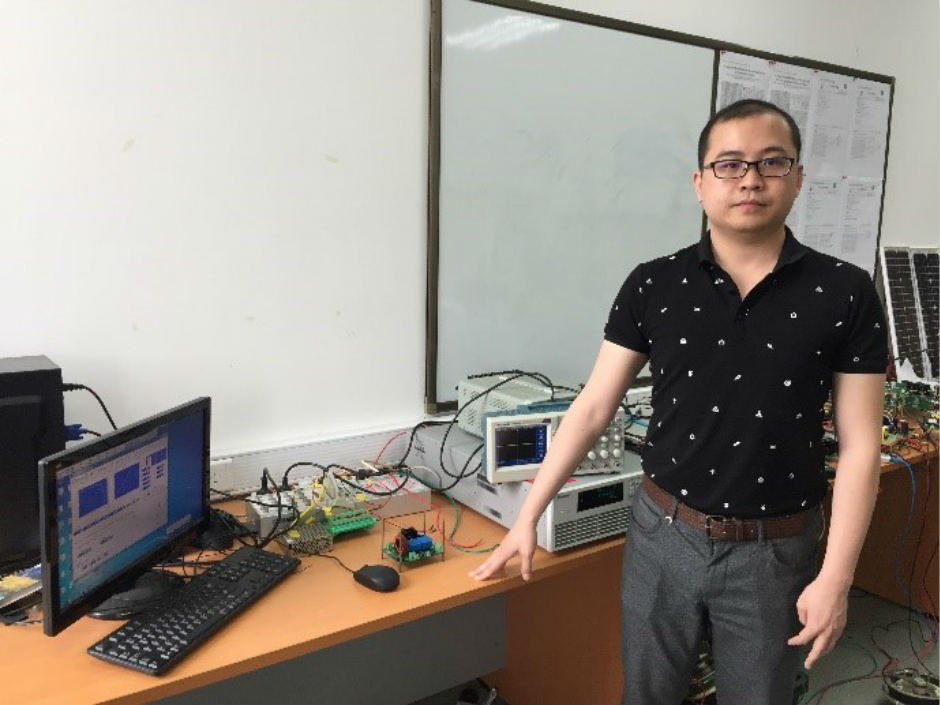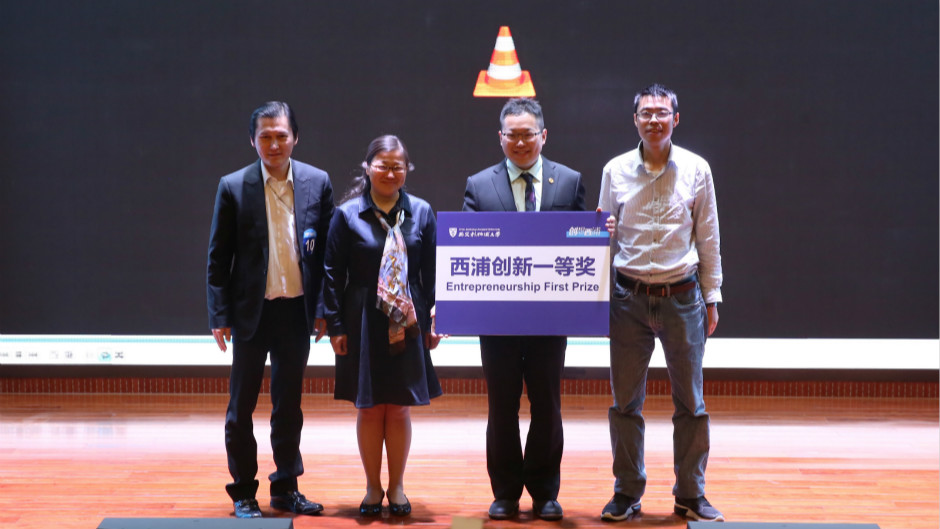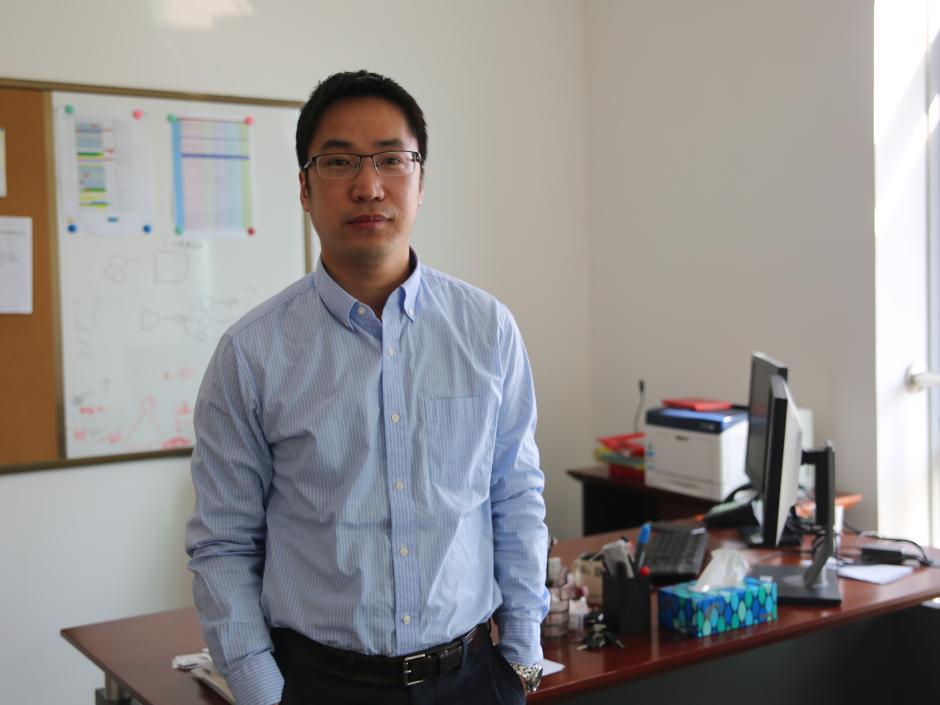08 May 2017
A research paper written by a PhD student in the Department of Electrical and Electronic Engineering at Xi’an Jiaotong-Liverpool University was accepted by a top Institute of Electrical and Electronics Engineers journal.
The paper, entitled ‘Modified beta algorithm for GMPPT and partial shading detection in photovoltaic systems’, was written by Xingshuo Li (pictured below), and was accepted by IEEE Transactions on Power Electronics, one of the top IEEE journals in the power electronics and sustainable energy field.

Under the supervision of Dr Huiqing Wen and supported by the National Natural Science Foundation of China and Jiangsu Science and Technology, Xingshuo conducted his research project on enhancing energy yields of photovoltaic systems under partial shading conditions.
The paper indicates that various sustainable energy sources such as solar, wind, and hydroelectricity, are experiencing fast development. However, how to achieve maximum output power under different conditions is still a challenging problem.
Especially under partial shading conditions, due to the interference of clouds, trees or buildings, the actual output power of photovoltaic arrays shows multiple peaks, which makes it difficult for the maximum power point tracking algorithm to determine the global maximum power point. This paper proposed a novel beta-parameter based algorithm, which shows better results compared with conventional methods.
Xingshuo Li published two papers, ‘An improved MPPT method for PV system with fast-converging speed and zero oscillation” and “An improved beta method with autoscaling factor for photovoltaic system”, in IEEE Transactions on Industry Applications, one of the top IEEE journals in the power electronics and sustainable energy field, last year. He has had five papers published in SCI journals and applied for five invention patents.
After graduating from the MSc Sustainable Energy Technology programme at XJTLU, Xingshuo Li decided to continue his studies in the sustainable energy laboratory and complete a PhD.
“It’s a good example to show the effectiveness of research-led education innovations, which is widely adopted at XJTLU,” said Dr Huiqing Wen, Xingshuo’s PhD supervisor.
“Usually the latest research topics are introduced in the module teaching, and students are encouraged to read top transaction papers,” he said.
Dr Wen expressed that students can gain practical engineering experience and skills in simulation, hardware design, and code debugging in well-designed laboratories, which helps students build a solid basis for deeper research.
“Besides, students are well motivated since they can freely select their module projects according to their interests,” he continued, “and they are even willing to spend extra time on the topics if they really show interest in them.”
Over the past three years, student numbers on the MSc Sustainable Energy Technology programme has increased several times, and the programme continuously attracts students from China and around the world.
08 May 2017
RELATED NEWS

Innovative projects showcased at student entrepreneurship competition
A competition at Xi’an Jiaotong-Liverpool University saw 16 teams of students presenting products and showcasing their innovative ideas and understanding of ...
Learn more

AI research projects at XJTLU: Intelligent scene understanding
It was reported in online magazine The Atlantic that China is becoming the world leader in research into artificial intelligence (AI). Furthermore, global de...
Learn more








